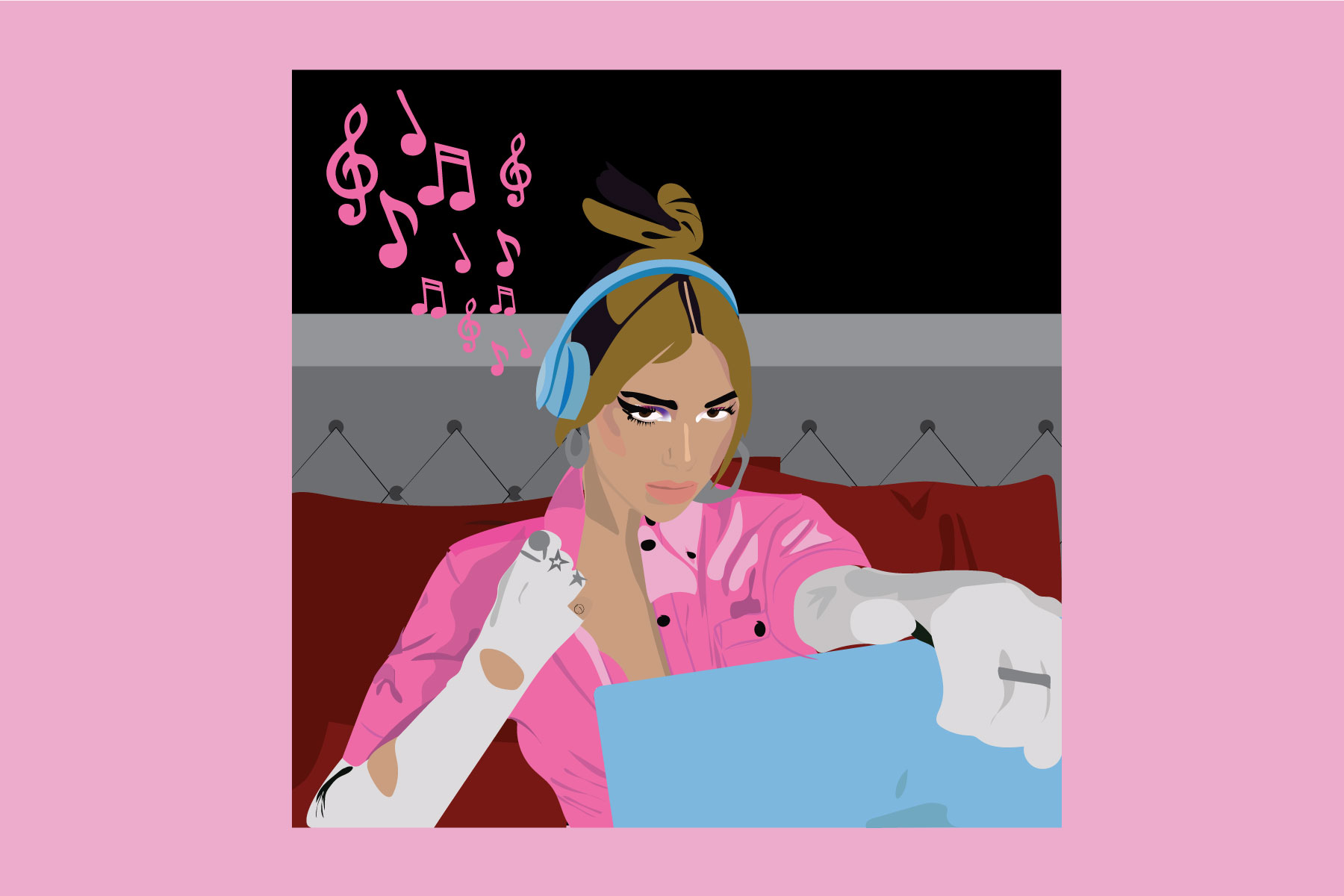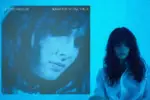“Future Nostalgia” is a nonstop dance party of an album with the power to lift anyone’s mood. Each of the 11 tracks is upbeat, with the exception of “Boys Will Be Boys” which is a slightly slower feminist anthem. Lipa’s hit single from the album, “Don’t Start Now,” hit No. 2 on Billboard charts for 20 weeks straight after its release in November of 2019, and the album is sure to follow. This live music video features Lipa performing the anthem along with a 19-piece band in LA.
The 24-year-old English singer was born to Albanian parents who left Kosovo in the 1990s. She moved to London with a friend at the age of 15, where she focused on her musical talent and landed a record deal at 18. Inspired by the hip-hop that was popular during her formative years in Kosovo, Lipa often sing-talks her lyrics. The artist’s signature beats and instantly recognizable voice made her a quick hit in England, although it wasn’t until “Blow Your Mind” came out in August of 2015 that she really hit fame in the U.S.
Lipa writes and co-writes many of her songs, so she was initially wary of recording what would become one of her breakthrough songs, “Be The One,” because she didn’t have a hand in writing it (the lyrics were written by Lucy Taylor and Nick Gale). She eventually agreed to record the song and pushed back at the claim that artists who don’t perform their own songs are less credible. Pointing to Rihanna as an example, Lipa told New Musical Express Magazine that artists who perform songs written by other people don’t lack talent, while adding that the songs she performs have to feel like they’re coming from her.
Lipa has also rejected features in songs that she felt did not represent who she is as an artist. Some of her hit features include Sean Paul’s “No Lie” and Martin Garix’s “Scared to be Lonely,” two songs that sound like they belong in a Dua Lipa album because they fit her style so well. Above all else, Lipa strives to remain true to herself.
Her songs are typically about love and loss and the album “Future Nostalgia” is no exception. “Love Again” sounds like a disco track straight from the ’80s, complete with violin accompaniment. “I never knew I had it in me to dance again,” she sings, “But Goddamn, you got me in love again.” This is the kind of song that people want to sing along to, that they relate to even if they haven’t had their heart broken and mended. In “Break My Heart,” Lipa sings of the fear of falling in love with someone who could break her heart.
The best part of “Future Nostalgia” is that it’s simple. There are no hidden easter eggs or feuds that fans can obsess over. Lipa’s style has remained consistent since her early days of “New Love” and “Bad Together,” although this latest album showcases her musical talent even more effectively. Lipa sums up her attitude towards her own image perfectly in “Blow Your Mind:” “You can’t tame me, can’t tame me / Tell me I have changed / but I’m the same me, old same me / inside.”
Female artists have a distinct lack of control over their own image online as compared to male counterparts. The media often twists their stories and attacks them for everything, from their dating lives to their clothing. Men largely escape this scrutiny, with most of the media focus being on their music itself. It is rare to see male celebrities described in the invasive and visually descriptive way that women are. This article from Headstuff explores how it would sound if male musicians were written the same way as female counterparts.
Like many other female songwriters who are frustrated by the different expectations for men and women, Dua Lipa makes a statement with the final song of the album, “Boys Will be Boys.” This song takes a more serious tone than the rest of the album, standing out in style as well as subject. It starts with a vignette that is all too familiar for women: “It’s second nature to walk home / before the sun goes down / and put your keys between your knuckles / when there’s boys around.”
She later calls out mansplaining and the gendered expectations that women should cover up their figures and not share their opinions. The ultimate message is that the classic “boys will be boys” response is no justification for how men behave. Lipa defends her position with her lyrics, “If you’re offended by this song / you’re clearly doing something wrong.” Lipa merely shares a common experience with listeners. She doesn’t ask them to agree with her or like what she’s saying — if they’re offended by her song, they can just not listen.
“Future Nostalgia” is a timeless album that asks listeners to do nothing more than jam out. The beats are fast-paced and on-brand with Dua Lipa’s style, so fans will be sure to like her latest work and get an instant mood boost.
















